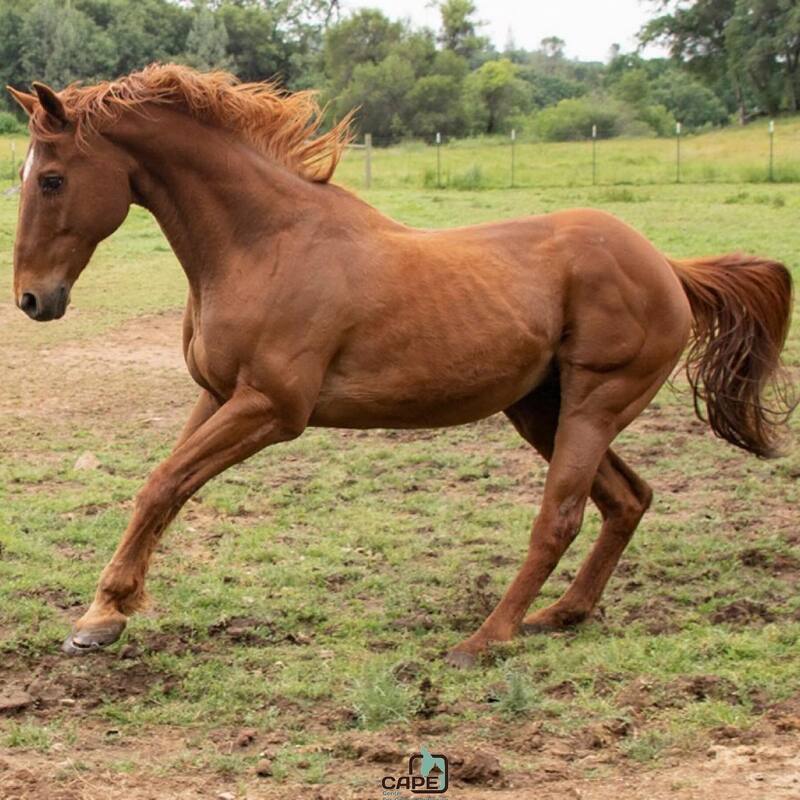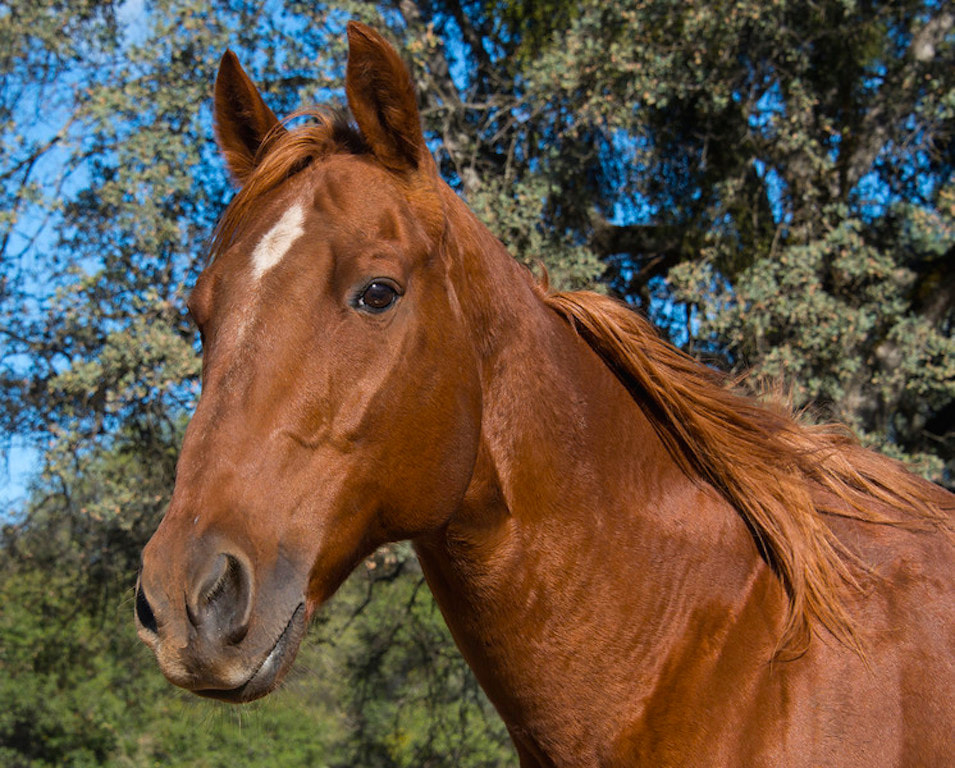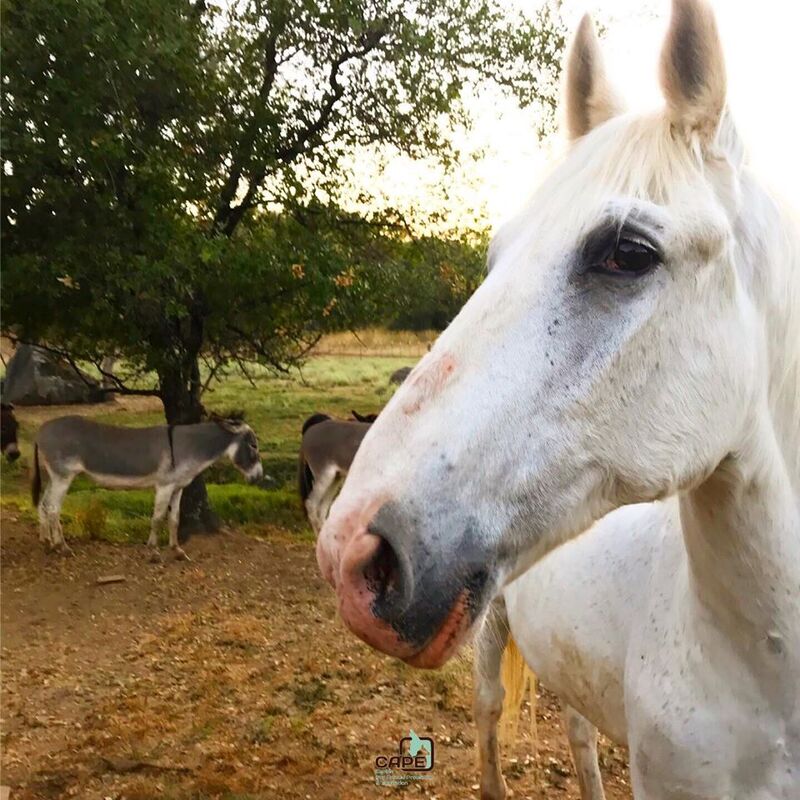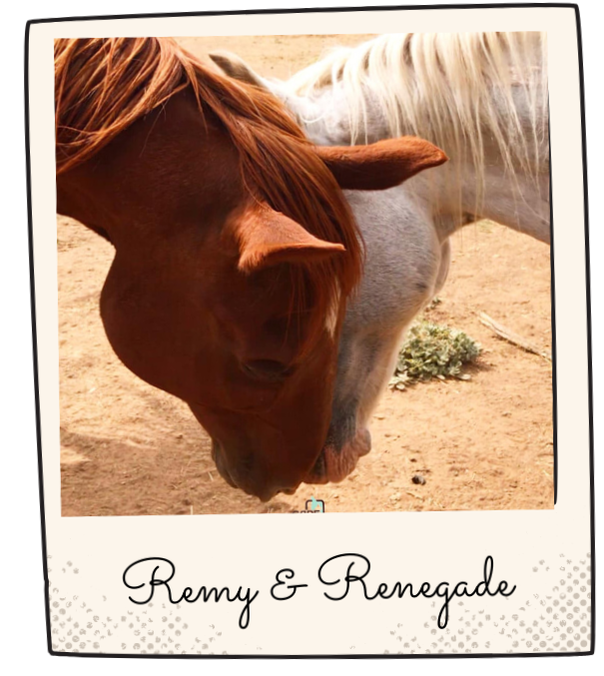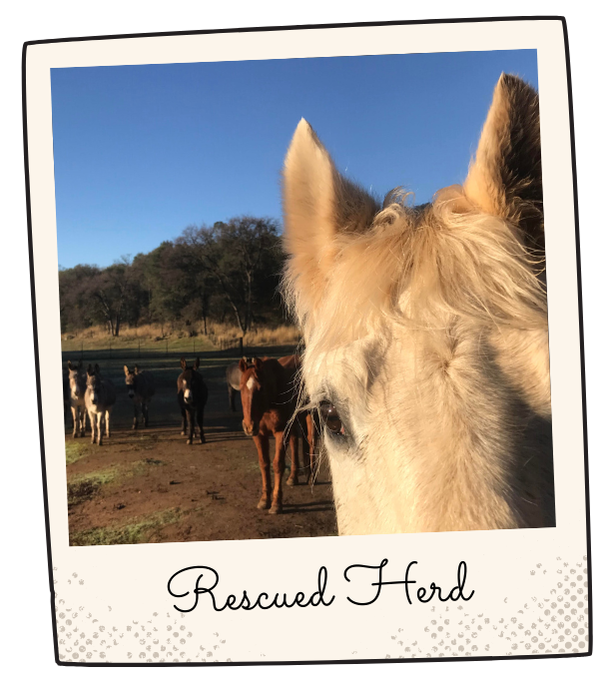in loving memory of Remy & Renegade
Remy & Renegade passed peacefully together on January 1, 2023 surrounded by people who love them deeply.
Considering the amount of pain and confusion that Remy must have experienced before being rescued by CAPE, it’s moving to see what a friendly and gentle horse he is. The first time CAPE met Remy, he was standing in a pen, head hung low with crusty, dull eyes, sores all over his legs and body, and drool dripping from his mouth. His spirit was broken, his eyes filled with what appeared to be fear, confusion, and sadness as he was brought into the ring for people to place their bids on him. He could barely walk. He was moments away from heading to slaughter. But the staff and volunteers at CAPE were determined not to let that happen.
Remy left that auction with CAPE and has spent the last six years at the CAPE Animal Sanctuary recovering from his previous life. Estimated to be 32 years old, he is now the leader of the equine herd, protective over the rescued burros and his new Mustang friend, Renegade. His wounds have healed, both physically and emotionally, and he is the first to greet visitors. One look into his eyes and you can see that Remy’s spirit is back as he proudly prances around his pasture, elegant and strong.
Remy left that auction with CAPE and has spent the last six years at the CAPE Animal Sanctuary recovering from his previous life. Estimated to be 32 years old, he is now the leader of the equine herd, protective over the rescued burros and his new Mustang friend, Renegade. His wounds have healed, both physically and emotionally, and he is the first to greet visitors. One look into his eyes and you can see that Remy’s spirit is back as he proudly prances around his pasture, elegant and strong.
Renegade is a mustang who once ran wild on public land. He was rounded up by the BLM at two years old, and was eventually adopted by a man who cared deeply about him. Renegade spent 25 years of his life with his one guardian. Sadly his person passed away. His dying wish was for Renegade to be in a stable, loving home.
After being cared for by Santa Cruz County Animal Shelter for 9 months, Renegade came to live out his life at the CAPE Animal Sanctuary. Some people warned us that Renegade was upset, agitated, and that he could be dangerous. When he first arrived, we moved very cautiously around him as he appeared to not want to be touched or handled. We knew he had Cushing's Disease which can affect a horse's physical well being.
Renegade has absolutely transformed in the short time he's been with us. Every morning before breakfast, Renegade walks up to the CAPE Animal Caretakers, asking for back scratches and kisses. He shows affection and trust now, something that took a few months to gain. He spends his days grazing the pasture with Remy, his new best friend, and a herd of burros, also rescued from the BLM. Remy and Renegade’s bond continues to grow as the days pass.
Renegade’s health has also much improved. At an estimated 31 years old, Renegade is at a good weight now, and the Cushing's is under control with diet and medication. We see joy in his eyes now, which is truly heartwarming.
After being cared for by Santa Cruz County Animal Shelter for 9 months, Renegade came to live out his life at the CAPE Animal Sanctuary. Some people warned us that Renegade was upset, agitated, and that he could be dangerous. When he first arrived, we moved very cautiously around him as he appeared to not want to be touched or handled. We knew he had Cushing's Disease which can affect a horse's physical well being.
Renegade has absolutely transformed in the short time he's been with us. Every morning before breakfast, Renegade walks up to the CAPE Animal Caretakers, asking for back scratches and kisses. He shows affection and trust now, something that took a few months to gain. He spends his days grazing the pasture with Remy, his new best friend, and a herd of burros, also rescued from the BLM. Remy and Renegade’s bond continues to grow as the days pass.
Renegade’s health has also much improved. At an estimated 31 years old, Renegade is at a good weight now, and the Cushing's is under control with diet and medication. We see joy in his eyes now, which is truly heartwarming.
|
|
|
Why does CAPE rescue horses?
• Horse racing is a cruel sport where over 1000 horses die every year. Injuries occur often and are masked with drugs and horses are forced to continue racing. After their racing days are over, typically around the age of six or seven, horses are often sold for slaughter.
• The BLM is a costly and cruel federal program that rounds up wild horses and burros from public land so that the land can be used for livestock grazing, mainly cattle. Helicopters are used during round ups, and many animals are injured or die
due to this barbaric practice. Wild horses and burros are then kept in holding pens. If they are not adopted, many end up being sold for slaughter.
• Like dogs and cats, there is a surplus of horses needing homes. Always rescue or adopt!
• The BLM is a costly and cruel federal program that rounds up wild horses and burros from public land so that the land can be used for livestock grazing, mainly cattle. Helicopters are used during round ups, and many animals are injured or die
due to this barbaric practice. Wild horses and burros are then kept in holding pens. If they are not adopted, many end up being sold for slaughter.
• Like dogs and cats, there is a surplus of horses needing homes. Always rescue or adopt!
What can you do to help end their suffering?
• You can help by never attending or supporting horse racing or rodeo events.
• Write your legislators giving them your opinion regarding bills that impact the horse racing industry.
• Consider a plant-based diet to reduce the impact that livestock farming has on other animals, your health, and the environment.
• Go to www.americanwildhorsecampaign.org for more information about how you can help the wild horses and burros that live on our public lands.
• Write your legislators giving them your opinion regarding bills that impact the horse racing industry.
• Consider a plant-based diet to reduce the impact that livestock farming has on other animals, your health, and the environment.
• Go to www.americanwildhorsecampaign.org for more information about how you can help the wild horses and burros that live on our public lands.
Interesting facts about horses:
• Horses protect each other and will take turns lying down to make sure their surroundings are safe.
• Whinnying and neighing sounds are made when horses meet or leave each other.
• Horses drink up to 25 gallons of water a day.
• Horses are very social and will mourn the passing of a companion.
• Horses are social animals and will always want to live within a herd.
• Whinnying and neighing sounds are made when horses meet or leave each other.
• Horses drink up to 25 gallons of water a day.
• Horses are very social and will mourn the passing of a companion.
• Horses are social animals and will always want to live within a herd.
“"Never, never be afraid to do what's right, especially if the well-being of a person or animal is at stake. Society's punishments are small compared to the wounds we inflict on our soul when we look the other way."
~ Martin Luther King, Jr
CAPE Tax ID#77-0368527
Copyright © 2016 Center for Animal Protection & Education. All rights reserved.

